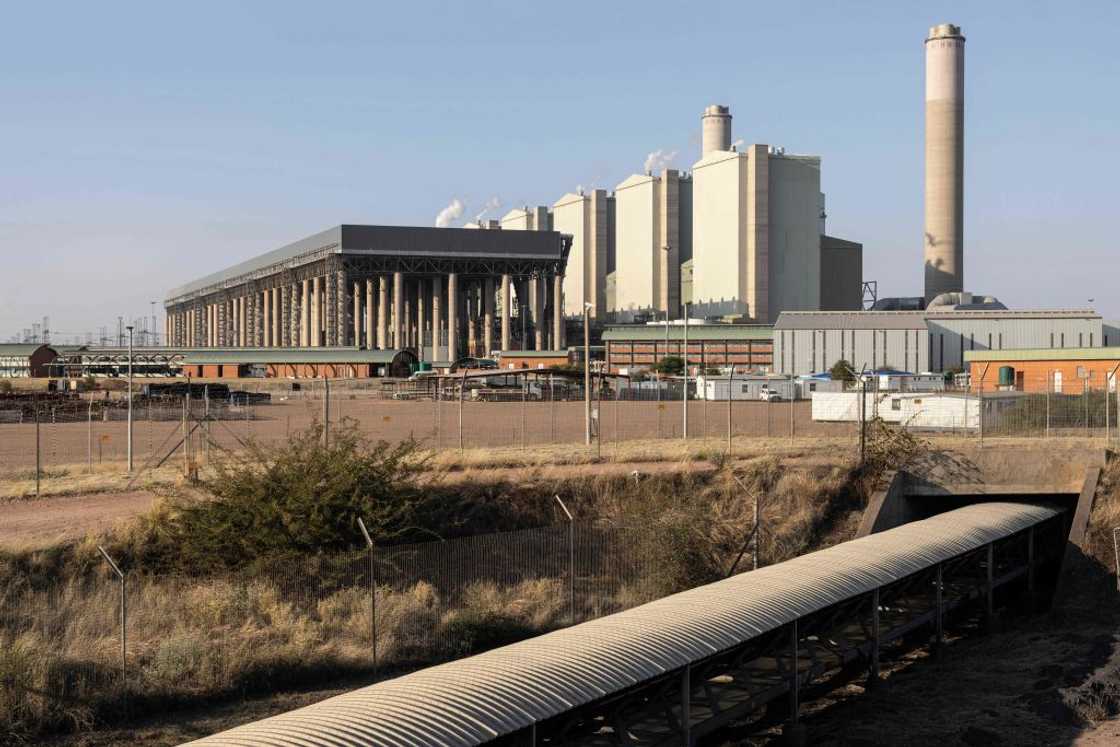South Africans Infuriated As Eskom Implements Stage 6 Loadshedding Without Warning
- Shortly after implementing Stage 3 loadshedding, Eskom announced that it is implementing Stage 6 loadshedding until further notice
- Multiple units at the Camden Power Station tripped and forced the state-owned enterprise to hike up loadshedding to Stage 6 in the dead of night
- South Africans were furious and some believed that the loadshedding was an act of sabotage
With nine years of experience, Tebogo Mokwena, a Briefly News current affairs journalist, provided insights into infrastructure challenges and state-owned enterprises in South Africa at Daily Sun and Vutivi Business News.

Source: Getty Images
JOHANNESBURG– South Africans were barely a few hours into Stage 3 loadshedding when Eskom announced after 1 am on 23 February 2025 that the country would be experiencing Stage 6 loadshedding until further notice. Many South Africans believed that the loadshedding was caused by sabotage.
Why is there loadshedding?

Read also
SA condemn driver after video of him smashing into wall at 200 km/h in sports car goes viral
According to Eskom, two power stations experienced multiple units tripping on 23 February. The state-owned entity posted on its @Eskom_SA X account that the Medupi, Camden and Majuba Power Stations all experienced multiple units tripping.
PAY ATTENTION: stay informed and follow us on Google News!
Eskom initially implemented loadshedding on Saturday after a unit trip at Medupi resulted in a loss of 3864 MW of generation capacity. As Eskom was trying to resolve the unit trip, multiple units at Majuba and Camden also tripped, necessitating Stage 6 loadshedding.
View the X tweet here:
Wasn't loadshedding supposed to be over?
Eskom recently celebrated 300 days without loadshedding on 21 January and said the utility’s generation capacity had improved. It also said that maintenance has improved and it saved R16 billion worth of diesel. However, shortly after celebrating, Eskom experienced breakdowns which forced it to implement Stage 3 loadshedding, marking an abrupt end of the loadshedding-free streak.

Source: Getty Images
1998 Report forewarned of loadshedding
The country's disruptive power cycle was predicted almost a decade before the country was plunged into cyclic darkness for the first time.
In December 1998, government officials, Eskom's top brass and analysts predicted that the power utility would run out of electrical power reserves by 2007. They warned that action was needed to prevent a disruption.

Read also
Activist calls on government to work with communities after 500 bully cases reported in 2025
Thus, the report recommended unbundling the utility and making it into separate power generation and transmission enterprises to improve supply and reliability.
Despite the ominous warnings, the national government stood idly by, taking no action. Then, during President Tabo Mbeki's administration, it was reported that the government considered privatising Eskom.
It later became the reason cited for why the government failed to act.
As a result, Eskom couldn't add additional generating capacity and laboured to keep up with the increased demand for electricity from 2002.
The government eventually permitted Eskom to expand energy production significantly (by 70%) in 2004, leading to the construction of 15 power stations between 1961 and 1996, adding capacity to the grid.
However, since then, many power stations are past their operational lifespan and are close to being decommissioned.
What you need to know about loadshedding
- Minister of Electricity Dr Kgosientsho Ramokgopa promised before the elections that he would bring an end to loadshedding.
- On 12 July, Eskom celebrated 107 days without loadshedding after successfully keeping the lights on throughout the 2024 winter season.
- Eskom CEO Dan Marokane in December promised that the festive season would be without rolling blackouts.
- Political parties including the MK Party and the Democratic Alliance lamented its return and the DA said it was a devastating blow to South Africa.

Read also
MK Party's Mzwanele Manyi shares photo of fake Elon Musk tweet, faces backlash from South Africans
What did South Africans say?
Netizens believed that the loadshedding was an act of sabotage. Others believed it was because members of the Government of National Unity rejected the proposed Value Added Tax hike, which led to the postponement of the budget speech to 12 March.
Ntokozo Masuku said:
"This is not incompetence. It's deliberate sabotage or sheer looting at work.”
Inenekazi said:
“When the powers that be don't get what they want, we get loadshedding.”
Bitcoin World said:
“Secondary form of money laundering.”
Alds95 said:
“And by breakdowns, you mean scare tactics after not getting the tariff and VAT hike. The Country isn't falling for this anymore.”
Tumelo/Sekonyela said:
“Loadshedding is used to divert attention from government scandals. The government is currently under pressure for that proposed 2% point tax increase. Imement loadshedding to get South Africans talking about that instead of the tax increase.”
Eskom warned about possible loadshedding

Read also
“Eskom’s pushing our creativity”: Singer uses cheese grater to cook during Stage 6 loadshedding
In a related article, Briefly News reported that Eskom warned there was a high possibility of loadshedding, a day before implementing Stage 3 on 1 February. It attributed the possibility of loadshedding to units breaking down.
It said that it experienced multiple breakdowns which required extended repair times. This pushed the power utility to burn through its diesel supply, triggering loadshedding.
Source: Briefly News

